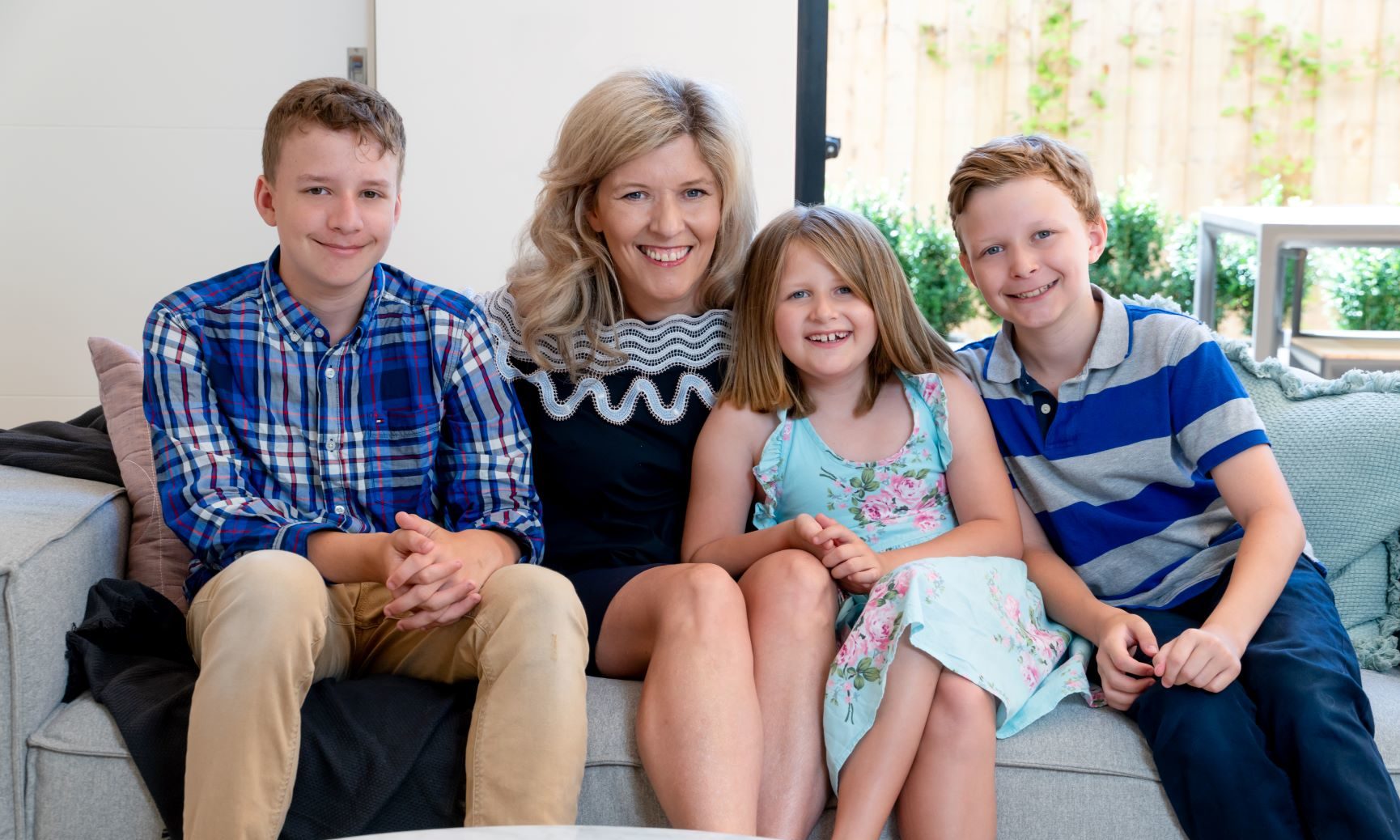Breaking barriers: At the table with best and brightest

This year is the tenth Blood Cancer Awareness Month and Deb Henderson shares her story to help us mark this important awareness month. Deb has blood cancer and is also a member of the Blood Cancer Taskforce.
I moved back to Australia from London in 2006 and, in 2011, was diagnosed in Melbourne at the age of 38 with a blood cancer called chronic lymphocytic leukaemia (CLL) and given five years to live. The average patient is a 72-year-old man. My children were aged only seven, five and two at the time.
I had chemo in 2013, relapsed as doctors said I would, and was about to have a risky bone marrow transplant when I discovered there was a trial of a new drug which I could get onto if I moved back to the UK. My youngest child was in prep and I had to kiss her and her older brothers goodbye and fly to London.
I stayed there for seven months with the children visiting me in school holidays. That treatment put me into three years of clinical remission with no detectable disease, but I had to commute to London to stay on the clinical trial for two and a half years after my doctors allowed me to move back to Australia in early 2016.
The first year was monthly flights. I’d leave Melbourne on a Tuesday afternoon arrive in London on a Wednesday morning, go to Barts Hospital, do the tests for the trial, pick up my drug and then fly back to Australia on the Thursday morning arriving back in Melbourne on the Friday night.
I did 10 flights to London in a year. After that it was every three months for another 18 months so it was still difficult. I cried when I was able to get the drug in Australia and stop commuting. That drug was invented in Australia at the WEHI in Melbourne and wasn’t even approved by the US Food and Drug Administration when I started it. It’s now on Australia’s Pharmaceutical Benefits Scheme (PBS) .
I came off that novel therapy just after I had the honour to start working on the Blood Cancer Taskforce. In fact, three of my doctors are on the taskforce with me and it’s incredible to be at the table with Australia’s best and brightest blood cancer experts.
And I’m living the work we’re doing: I’m now on another novel therapy that was only listed on the PBS last year and I’m about to become one of the first patients with CLL in Australia to have CAR-T, a highly experimental and expensive but potentially curative treatment for my disease.
I go into hospital next week (September 2020). This is my fifth line treatment. It won’t be easy but we’ll know if it has worked by mid October.
The treatment I’m about to have is another first-in-human study and only five centres in the world are offering this trial. The Peter Mac in Melbourne is the only hospital outside of the US to be offering it thanks to the funding the hospital received to set up a centre for CAR-T a year ago.
I strongly feel it’s my role as the patient representative on the taskforce to make sure all blood cancer patients, no matter where they live, have access to the right treatments for them at the right time.
We must also make sure every patient knows about clinical trials and is able to have the opportunity to get on them. We’re fortunate in that we get so many of them in Australia.
I also believe we can close the gap in outcomes and eliminate unnecessary deaths to blood cancer and that’s why I’m so proud of what the taskforce has achieved so far but this is just the start. After we release the National Strategic Action Plan for Blood Cancer the work begins to implement our recommendations. I hope I’ll be able to help with that, too.
I’m a journalist, working full time, as well as home schooling, and the whole Covid-19 experience has actually made me feel safer than ever before because everyone around me is taking precautions. Although I’m ready to stop being locked down now (and so are my children and the rest of Melbourne I think)! They’re 16, 13 and 10 now and I’ve outlived my prognosis by five years.
I’m hoping that scientists and my doctors will help that continue for many years to come.
How did you break barriers, like Deb?
Share your blood cancer story here Blood Cancer Awareness MonthLast updated on April 5th, 2022
Developed by the Leukaemia Foundation in consultation with people living with a blood cancer, Leukaemia Foundation support staff, haematology nursing staff and/or Australian clinical haematologists. This content is provided for information purposes only and we urge you to always seek advice from a registered health care professional for diagnosis, treatment and answers to your medical questions, including the suitability of a particular therapy, service, product or treatment in your circumstances. The Leukaemia Foundation shall not bear any liability for any person relying on the materials contained on this website.